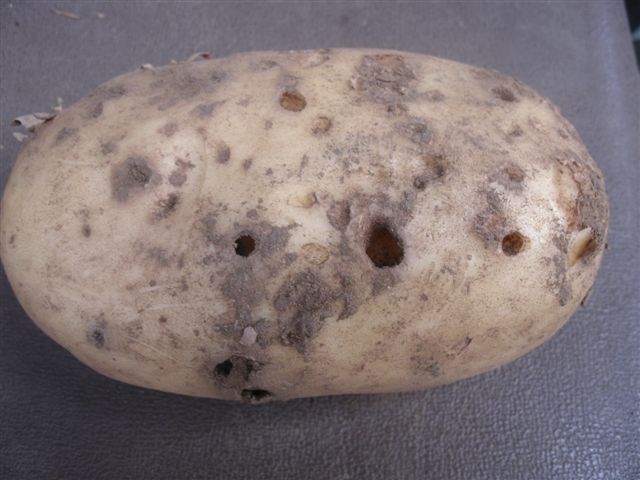Integrate methiocarb into slug control plan

Following the wettest April on record which has encouraged slug populations to escalate, growers are reminded of the strict Stewardship guidelines for the application of metaldehyde-based slug pellets and are being encouraged to actively integrate alternative active ingredients, such as methiocarb, into their slug control programmes this spring and summer.
Dr. David Stormonth, Technical Manager for Interfarm, suggests that growers should introduce methiocarb into their programme in potatoes and vegetable crops.
"Metaldehyde has a total maximum permitted application rate of 700 gms a.i. per ha per calendar year and a maximum individual dose rate of 210 gms ai per hectare. Advisors can recommend lower rates of 160 gm a.i. per ha as an additional water protection measure. These dose rates form part of the Stewardship guidelines and must be adhered to in order to avoid any water contamination. So iIt makes sense to use alternative actives such as methiocarb in the spring and summer campaigns, so that metaldehyde limits are not exceeded as the year progresses and the slug risk increases. Planning ahead and integrating different molluscicides across the year, not just in the spring, but into the autumn is important as slug pressure in winter sown crops can also be high."
He reports that, as methiocarb is more than eight times less soluble than metaldehyde, it binds tightly to the soil and is less likely to cause water issues.
"Field trials also show that Cobra is more effective than metaldehyde at a wider range of temperatures and at high humidity and that slugs find Cobra pellets 50% faster than metaldehyde pellets. Being a stomach poison, methiocarb works in a different way to metaldehyde."
"This means that slugs feeding on Cobra pellets won’t recover and effective slug control is the result, with a lower risk of water contamination. Accordingly, you should seriously consider integrating Cobra into your slug control programme."
Cobra has label recommendations for use in a wide range of broad-leaved crops including potatoes, Brussels sprouts, cabbage, cauliflower, outdoor lettuce, outdoor spinach, strawberries, sunflower, oilseed rape and all non-edible crops, as well as wheat, barley, triticale, oats, forage maize and rye.
In potatoes Cobra can be applied at a maximum individual dose of 3.75 kg/ha up to a total maximum of 11.25 kg/ha per season, equivalent to over 3 applications.
In this crop applications can start from 50-70% ground cover and end 18 days before harvest, giving plenty of time to apply.
In Brussels sprouts and cauliflower it is recommended at 3.75 kg/ha with two applications allowed and in cabbage, outdoor lettuce and outdoor spinach it is applied at 3 kg/ha, with one application per crop.
"Containing 4% methiocarb, Cobra is a modern high quality wet extruded pellet, which maintains its integrity, even in wet conditions. It is very durable, giving long lasting persistence with the possibility of fewer applications and it has good ballistic properties so achieving an even application across the soil surface," David Stormonth says.
Cobra is a pelleted bait containing 4% methiocarb for the control of slugs, snails and strawberry seed beetle, with a reduction in leatherjackets.
It is recommended in barley, Brussels sprouts, cabbage, cauliflower, forage maize, oats, oilseed rape, outdoor lettuce, outdoor spinach, potatoes, rye, strawberry, sunflower, triticale, wheat and all non-edible crops.
It has Maximum Individual Doses of between 3.0 and 3.75 kg/ha per crop and Maximum Total Doses per season of between 3 and 11.5 kg/ha depending on the crop.
It has no LERAP, but it is important to keep out of watercourses. It is packed in boxes of 2 by 10 kg poly bags.








